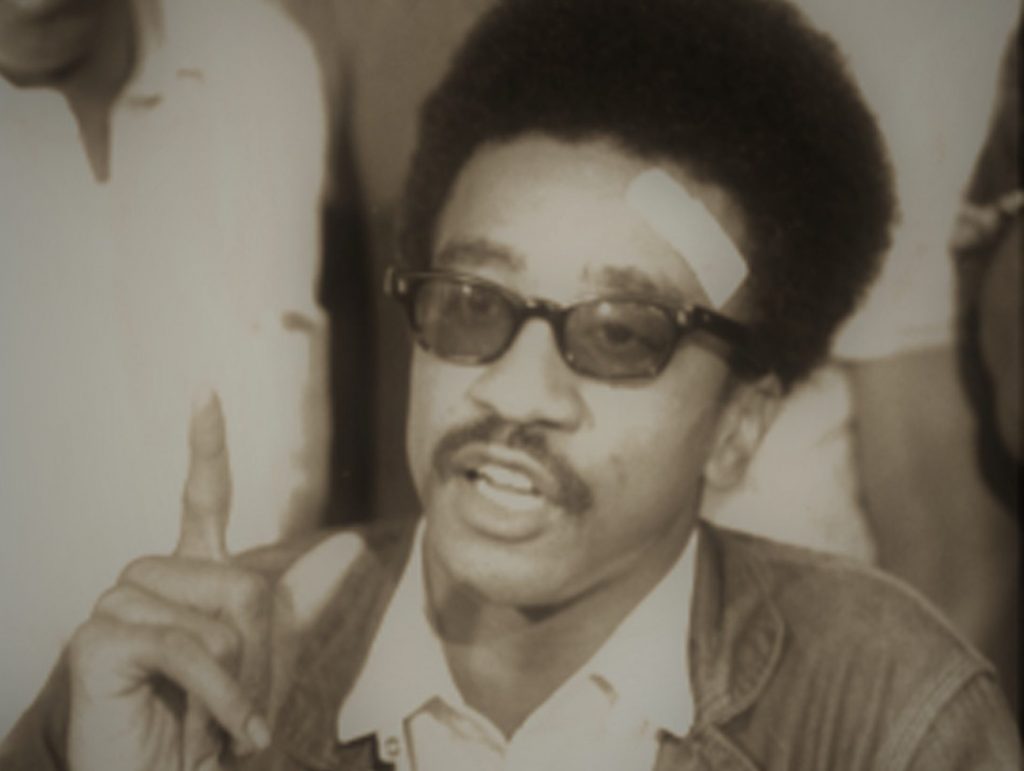Imam Jamil Abdullah al-Amin, formerly known as H. Rap Brown, is a 78-year-old human rights activist who has been imprisoned since 2002. His current incarceration is the result of a winding pursuit by the federal government that originated in the late 1960s. Al-Amin is one of many Black political prisoners currently being held in U.S. prisons, at least 19 of whom have been locked up since the 1970s for their activity in the Black liberation movement.
The United States has the highest incarceration rate in the world, and Black people comprise a highly disproportionate part — 40 percent — of the incarcerated population, while making up only 13.4 percent of the country’s overall population. In 2020, thousands of Black Lives Matter activists were charged with “crimes” related to their participation in the protests, and many of them have been sentenced to prison or are still face charges. While BLM activists and those from the 1960s and 1970s are clearly of different eras, it’s a sign of how activists in the contemporary struggle for liberation face the same repressive forces — sometimes expressed through longstanding “grudges” by federal cops, like in the case of H. Rap Brown.
During the civil rights movement of the 1960s, al-Amin, then H. Rap, succeeded Stokely Carmichael as chairman of the Student Nonviolent Coordinating Committee (SNCC) and then went on to become the Black Panther Party’s minister of justice. Known in those years for his militancy in the pursuit of liberation, al-Amin is credited with originating the saying that violence is “as American as cherry pie.” His positionality and political activity during that period spurred decades of bogus charges and several instances of being detained, primarily by or at the behest of the federal government.
Like Martin Luther King Jr., Malcolm X, and Fred Hampton — who was 21 when he was murdered by the police — al-Amin’s wielded tremendous influence in his community. They were all influential Black leaders who sparked fear among federal authorities. Activists with wide appeal across different identities and lived experiences, and who have radical politics, were and remain a particular challenge to the capitalist state and status quo. The state’s response back then was to target movement leaders for incarceration or assasination through COINTELPRO, the FBI’s infamous counterintelligence program launched by then-FBI director J. Edgar Hoover. COINTELPRO’s objective as a government program was to suppress and silence the Black liberation movement and the Left more generally by marginalizing and eliminating leaders with mass appeal. Al-Amin’s current incarceration, like the imprisonment of others who were unafraid to speak of the necessity of arming and defending their communities against state terror, is a direct result of this secret government project that was exposed in 1971 and forced to be shut down.
In 1971, al-Amin was imprisoned for armed robbery, after years of fleeing government agents and having been on the FBI’s “Ten Most-Wanted” list. During his five-year imprisonment in the 1970s, al-Amin converted to Islam; when he was released in 1976, he settled down in Atlanta’s West End. He spent years as a community Imam, or Muslim congregation leader, running his own Mosque and grocery store. Unfortunately, the state never stopped targeting him.
In March 2000, after missing a trial call over a contested traffic charge, a warrant was issued for al-Amin’s arrest in Cobb Country, Georgia. When two deputies showed up at his store to serve the warrant, they did not find al-Amin, but Otis Jackson, another member of the community. Jackson exchanged fire with the police when they approached; he was shot and injured, one deputy was killed, and the other injured.
The next day, Jackson confessed to the shooting to his parole officer. That didn’t stop a federal agent from arresting and beating al-Amin three days later.
The judge issued a gag order prior to al-Amin’s trial, and the trial itself was rife with insubstantial evidence and contradictions submitted in court: weapons introduced that did not have al-Amin’s fingerprints; a ballistics expert who later terminated; and the state failing to reveal Jackson’s written confession to the crime. (You can watch one of the many times Otis Jackson confessed here.) In fact, the surviving deputy’s incident report stated that he had hit his assailant with gunfire; al-Amin had no such injury.
All this is to say that al-Amin was not afforded a fair trial in which he was presumed innocent until proven guilty; instead, he was silenced by the court before the trial even began, and then was convicted despite the abundance of countervailing evidence — none of which allowed to be introduced at trial. Jackson even went so far as to report to the FBI that he had been the man that night, but the feds were clearly determined to silence and imprison the Imam for his actions as H. Rap Brown.
Once al-Amin was jailed in a Georgia state facility, other inmates — especially Muslims — approached him seeking spiritual guidance and community. Despite being immediately placed in solitary confinement, he gained a following, which eventually led the FBI report to issue a report in 2006 titled “The Attempt to Radicalize the Georgia Department of Corrections’ Inmate Muslim Population.” In the post-9/11 climate, Islamophobia contributed substantially to the level of alarm with which al-Amin was seen as a threat.
The report led to al-Amin’s transfer to a federal ADX “supermax” prison in Colorado, a place known for extreme disciplinary policies, and was immediately placed in solitary confinement. Again, the federal government made al-Amin’s case a national matter, while he had actually been convicted of state charges in Georgia. The transfer isolated him from the community he had engaged with at the state prison, as well as from his family, community, and legal team in Georgia.
Due to medical issues, al-Amin has since been released to the general prison population. He has gone blind in one eye due to medical neglect at the federal facility.
Hope for al-Amin’s release lies today in an investigation underway by the Fulton County Conviction Integrity Unit in Georgia. His son, Kairi al-Amin, runs the website whathappened2Rap.com, where he asks that supporters sign the petition to the Integrity Unit demanding a new, fair trial. He also emphasizes the need to share his father’s story widely.
Al-Amin’s story has been intentionally erased from the mainstream media because it spells out the egregious abuse committed by the federal government. In order to ensure this respected community leader and human rights advocate gets to live the remainder of his life in peace, substantial alarm must be raised and attention must be brought to his story so that the state can no longer hide this atrocity.
Free Imam Jamil Abdullah al-Amin and all political prisoners!










